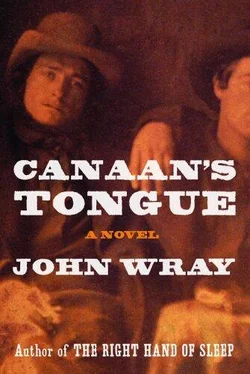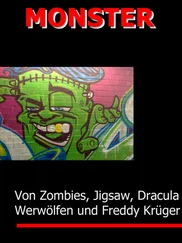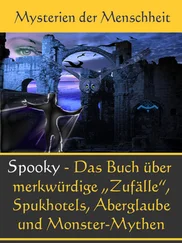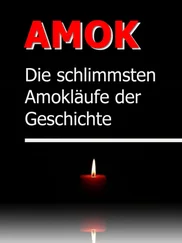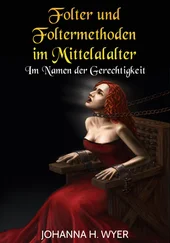I did as I was told. The notion of abolition, however — the possibility of it, better said — had worked itself under my hide. “You seem to be listening to everybody but the people around you, sir,” I said at last. “The South will never stand for it. The idea that anyone would endorse—”
“They won’t need to endorse so much as a theater ticket,” the Redeemer replied. “The country we fatten ourselves on thinks of itself as a democracy, Virgil. Have you forgotten?”
“You know as well as I do, sir, that this country is a—”
“Nebraska and Kansas are to come into the Union as free states,” he said, cutting me short. “I received word this morning.”
I sat back in my chair, dumb-struck. I’d just come from New Orleans, and would certainly have heard such news down there, if anyone had known it—: there would have been rioting in the streets. “You got word —?”
The Redeemer nodded absently, as if the fact held little interest for him. “Don’t get into the habit, dear K, of letting your mouth hang open. An open mouth indicates feebleness of character—; it is also well known to affect the teeth.”
“I should very much like to know, sir, who you’re getting these reports from, and whether they’re in any position to give reliable, well-founded—”
But the Redeemer only turned on his heels in that odd pirouette of his, and said to me melodiously as he waltzed out of the room—: “So long as the present constellation of states persists — the Yankees fat and nimble, the South condescended to at every turn — then our way of life, dear K—” (and here he winked over his shoulder, as a vaudevillian might to an offstage admirer) “—remains permanently en péril !”
With that I was left to my disbelief. The fight over the territories had been raging for years, and I’d stopped paying attention long since. But the Redeemer was right on one score, at least—: the admittance of Kansas and Nebraska as free states would tip the balance of power irresistibly, irrecoverably toward the North. In time, the holding of slaves would be outlawed throughout the Union. It would take years— perhaps even decades — for the change to come about—; but come about it would, sure as pox and watered beer.
The Abolitionists were the cause of it—: the Abolitionists with their mirthless, glassy rhetoric, their funerary tastes in clothing and amusement, and their Bible that resembled our own in every outward respect but seemed the testament of an entirely different deity. The Trade ate away at the foundations of the South, of course—; but it took care only to nibble. That the Abolitionists (whose existence — irony of ironies! — made our enterprise possible) might actually succeed was an idea I’d never once credited. They’d always seemed too starched, too prim, too shrill to catch the fancy of the country. But things were changing everywhere you looked—; you felt it even on Island 37. The country itself was getting shriller, and the Abolitionists fervid speechifying was taking on the ring of prophecy.
I was floundering in this and other worries when the Redeemer reappeared, carrying a quill, a palm-sized note-book, and a penny-box of matches. He set the matches beside the candle on the table.
“Is it right?” he asked, as ritual required.
I shook my head. “It’s not right,” I replied.
Deliberately, silently, he moved the candle to the left, rotating it counter-clockwise as he did so.
“Is it right?” he asked again, more softly than before.
I took in a careful breath. “Yes,” I said. “It’s right.”
He smiled and snuffed the candle with his fingers. The room fell at once into a heavy, violet darkness. I made no effort to clear my mind of its usual clutter, to compose myself, or to locate the Redeemer in the room. I simply sat as I was and waited. The sound of the bar below us gradually fell away. The darkness thickened and set.
“I’m ready,” I said, straightening.
No sooner had I spoken than there came a sharp pop ! and the head of a match flared to life a hand’s breadth from my left eye. If a powder-keg had caught fire in my left eye-socket the pain could have been no greater. I cursed and gnashed my teeth and cried aloud to heaven. The flame remained as it was for perhaps three seconds more—; then it sputtered and went out.
For a time there was only a hexagram of light in my left eye, and a rhombus of vaguer color in my right—; then, creepingly at first, but with ever-greater speed, a net of green sparks spread across my sight.
“What is it?” came the Redeemer’s voice.
“A six-pointed star. With a net drawn across it.”
“What color is the net?”
“Green.”
“Green? You’re sure?”
“Yes. Green and rust-colored.”
A pause. The sound of a quill being scraped against a cup. The smell of India-ink.
“And the net? Also green?”
“Yes. The net is fading now.”
“Does the star remain?”
“Yes. It’s beginning to turn.”
“Clock-wise?”
“Yes. Wait—: there’s a cloud behind it.”
“What color?”
“Yellow.”
Another pause. The rustling of paper. “Yellow, you said?”
“Yes. It’s already gone.”
“What now?”
“Nothing. Gray lines on a grid.”
“Is it the old grid?”
I opened my eyes with a sigh. “Same as ever.”
“I’ll be the judge of that,” the Redeemer said smugly.
Now the candle was lit again, and slid closer to me, and I bent slowly forward till my eye was at its flame.
“What is it?” the Redeemer whispered.
I brought my eye closer still, so close that my brow began to prickle from the heat. The brightness was so severe that I could feel the flickering and bucking of the flame, like a curious finger-tip, on the lining of my brain.
“The net,” I said quickly. “The flare. The yellow cloud.” I paused a moment. “The same star as before.”
“What else?”
I sat back with a groan. “That’s all.”
The Redeemer nodded and closed his book. “Was there pain?” he said, touching my forehead lightly with two fingers.
I cursed him silently. “You know there was.”
“How much?”
“There was pain,” I said. I brushed his hand away.
“You’re becoming more sensitive,” he murmured, touching my face again. Something I’d seen had excited him—; that much was clear. “More pain with the candle, or more with the match?”
“More with the candle,” I said. “With the candle it was as much as I could bear.”
This pleased him better still. “A full reading!” he crowed, holding his notes aloft. “Fuller than most, at any rate. Four signs!”
Usually he said nothing when we’d done, and asked me no more questions—; the reading must have affected him profoundly. “Will it take long to puzzle out?” I asked.
“Don’t be impatient, Kansas. Bide here for a spell.” He snatched up his notebook and spun away again.
I sank wearily to one side, covered my eyes with my palms, and tried to make my own sense of what I’d seen. The result, as usual, was an over-powering urge to sleep. There was nothing wondrous, to my mind, in our sessions, other than the amount of pain they caused me. I had as much confidence in the power of my left eye to foretell the future as I had in my right ear’s ability to predict rain. From the next room, as if across a great body of water, the rustling of folio pages could be heard. A familiar voice intruded on my repose.
“A yellow cloud, Virgil? Yellow? Are you quite sure?”
I sat up with a start, as though prodded awake, to find the Redeemer sitting next to me at the table. His arms were folded tightly against his belly and he was watching me with violence in his look—: at first I thought I’d somehow spoiled the reading.
Читать дальше
